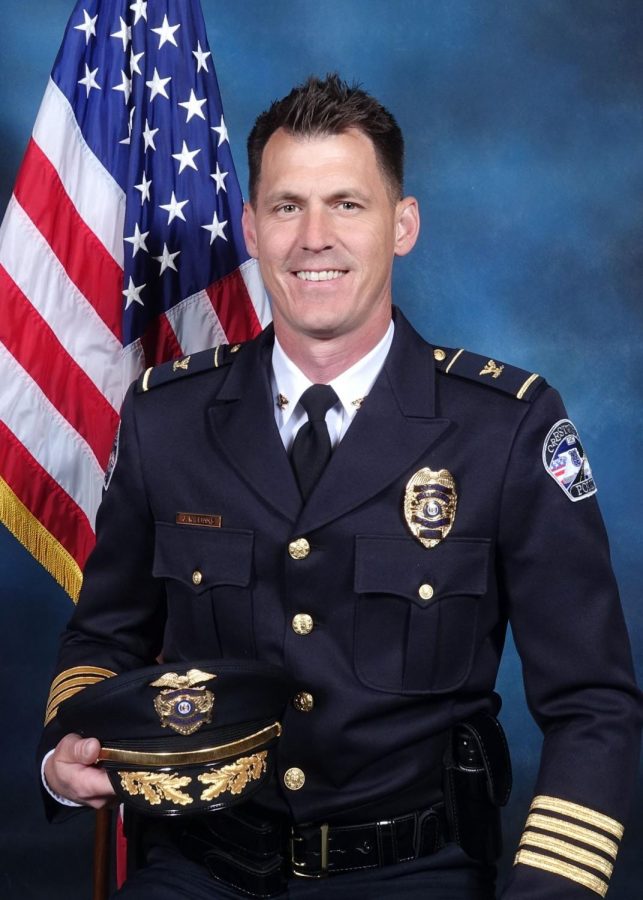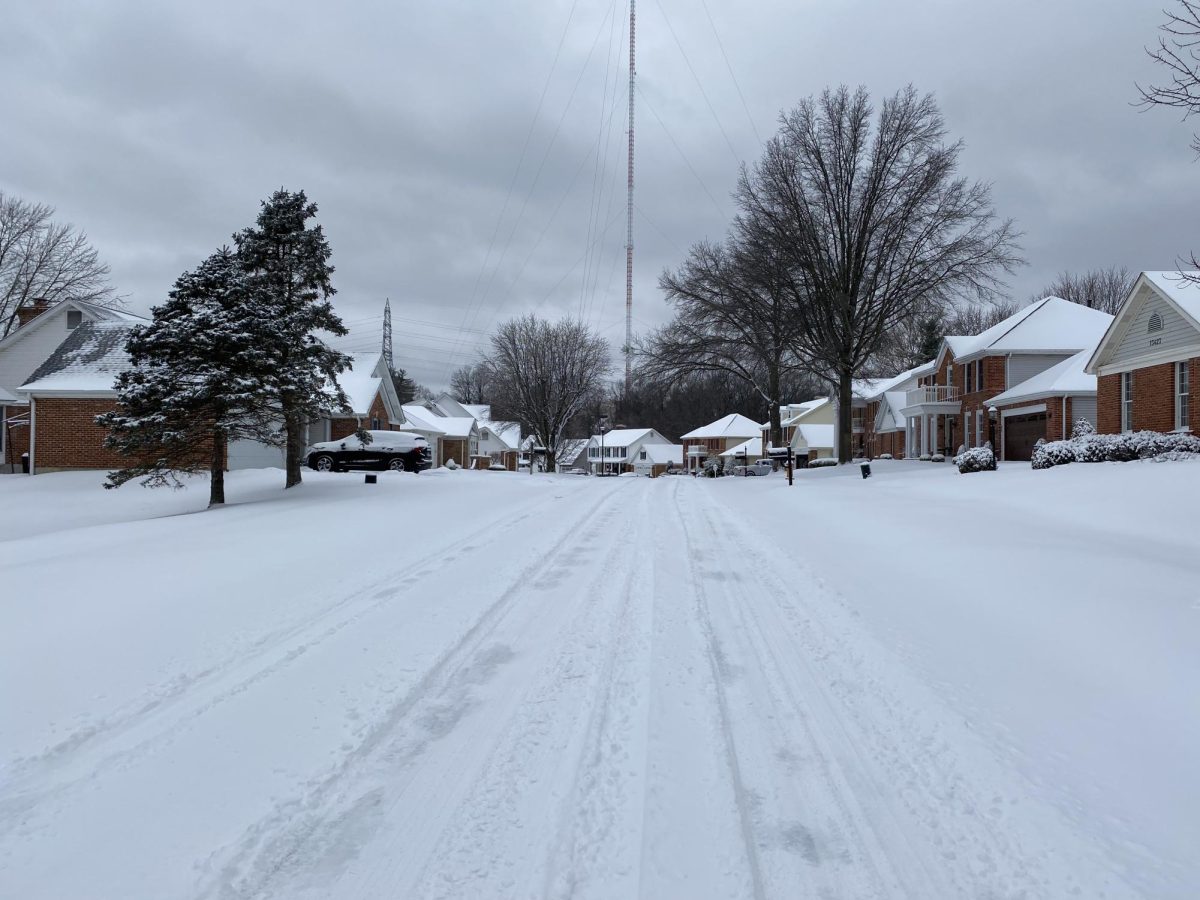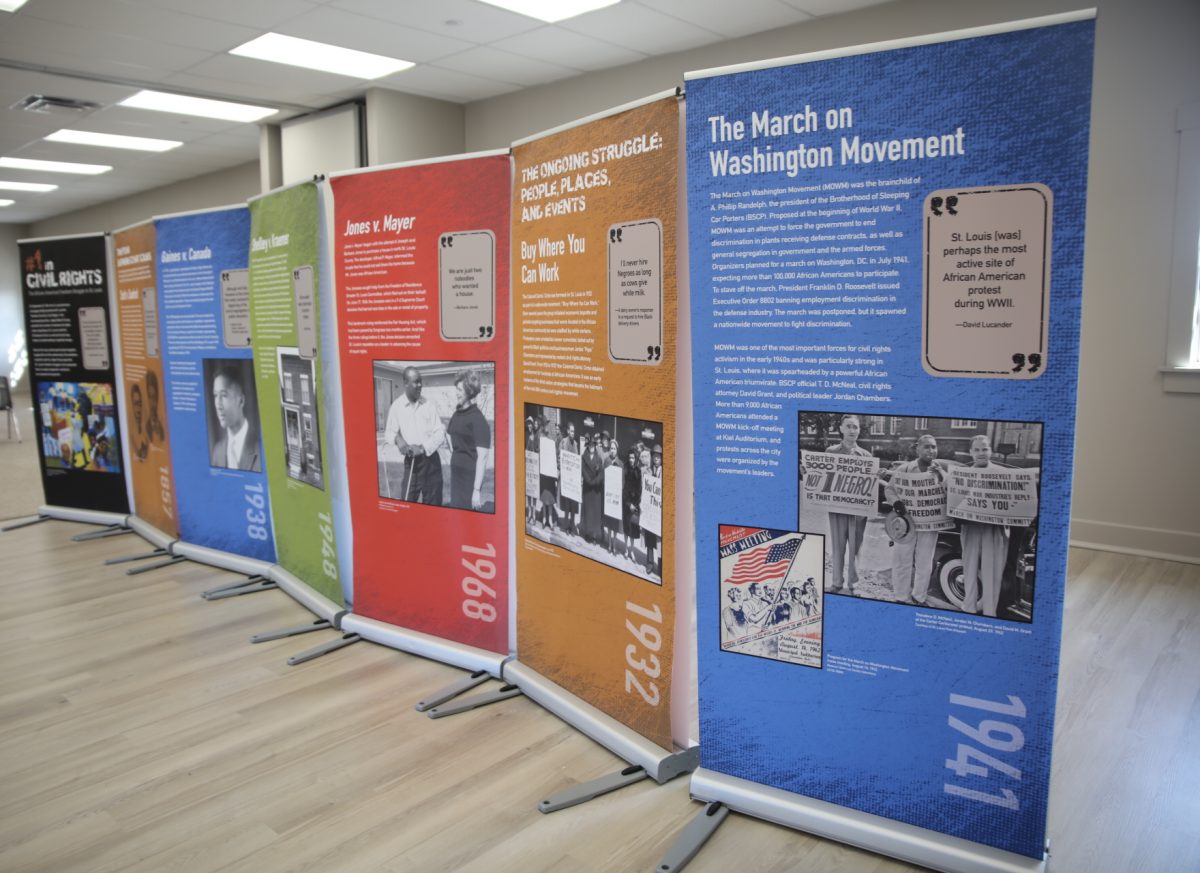The Missouri Supreme Court will not hear Fred Weber Inc.’s $5 million libel and defamation lawsuit against Oakville resident Tom Diehl.
“It pretty much is the last nail in the coffin except for the Hail Mary chance that the U.S. Supreme Court would hear this case. The odds are very small,” said Phil Prewitt, an attorney for Diehl.
An attorney for Weber would not say if the company planned a federal appeal, but Weber’s most recent court motions have cited federal court decisions, rather than merely Missouri law.
“We haven’t even looked at that. We haven’t decided one way or another,” said Thomas Wehrle of Gallop, Johnson & Neuman.
Weber sued Diehl in February 2004 for his association with fliers naming the company “trash terrorists.” Diehl and many other Oakville residents opposed Weber’s efforts to construct a trash-transfer station in the company’s south quarry near Baumgartner Road.
Calling the fliers fact-less, malicious name-calling, Weber sued Diehl for libel, slander, defamation and business conspiracy. Besides seeking $5 million in punitive damages, the lawsuit sought at least $25,000 in actual damages.
When St. Louis County Circuit Judge John Kintz declined to dismiss the case, Diehl’s attorneys asked the Eastern District Missouri Court of Appeals to intervene by filing a writ of prohibition to stop Kintz from proceding.
In upholding Diehl’s request, a three-judge panel ruled the statement “trash terrorist” a matter of opinion, not a false statement of fact and therefore inapplicable to libel, slander, defamation or business conspiracy law. Weber attorneys falsely tried to isolate the term “terrorists” to prove Diehl inappropriately and inaccurately implied the company murdered innocent people, the appellate opinion stated.
Appealing that ruling, Weber attorneys filed a motion stating, “… The phrase ‘trash terrorists’ is quite precise because it falsely claims that Weber, which is in the landfill and trash business, operates them illegally or unethically and harms children, devalues neighborhoods, pollutes the environment and spreads disease with a political agenda and aim. The flier attacks Weber’s reputation; it does not address the merits of the proposed trash-transfer station.”
In a separate motion to the state Supreme Court, Weber cited federal issues of interest: citizens’ First Amendment right to petition government without the fear of reprisal or attacks on reputation, for example.
Weber also asserted that the appellate court retroactively applied a law when it granted the writ of prohibition, which wasn’t enacted until after Diehl’s case was filed.
Retroactive application of law is a violation of the U.S. Constitution.
After the Diehl suit was filed, the Missouri Legislature adopted a measure for speedy dismissal of suits labeled as Stra-tegic Litigation Against Public Participa-tion, or SLAPP suits, and attempted to strengthen anti-SLAPP laws during the last legislative session. Citing federal law, Weber said the court inappropriately used this “legislative intent” to grant Diehl relief, effectively changing the public policy on dismissal of certain lawsuits.
“It was only after the loss at the court of appeals that they tried to make it a federal issue,” Prewitt said. “They started raising their federal issues in their motions to the higher court.”
Plus, the Missouri Court of Appeals did not cite any federal law or issue in its ruling. Federal law must be in dispute for cases to enter the federal courts.
“The (Missouri) courts did not rely on anything but Missouri law and that is why (a successful federal appeal) is highly un-likely,” Prewitt said.
That doesn’t mean an appeal isn’t possible, however, and if Weber files a motion, Diehl’s fate could be in limbo for months.
“I just hope that now Fred Weber’s lawyers will let us go on with our lives, let us get back to running our business, and I wish they would leave the people of south county alone,” Diehl told the Call. “I have no way of knowing whether this is done or not. Fred Weber Inc. and their attorneys seem to have used every opportunity to push this because they know that while this is in court, south county citizens are afraid to speak out against them and the trash-transfer station.”
The U.S. Supreme Court adjourns in June and will reconvene in October. The high court already has accepted several cases and is nearing a full docket.
“They could add to that, but their docket is already starting to fill up,” Prewitt said. “It would be months before we got a response (to Weber’s potential motion).”
The U.S. Supreme Court is Weber’s last option, a weak option, he said. And while Diehl has been in legal battle for more than a year, it could have been longer if the case went to trial in circuit court.
“If the trial judge’s ruling had been upheld instead of overturned, we would have just now been getting ready to go to trial,” Prewitt said.








